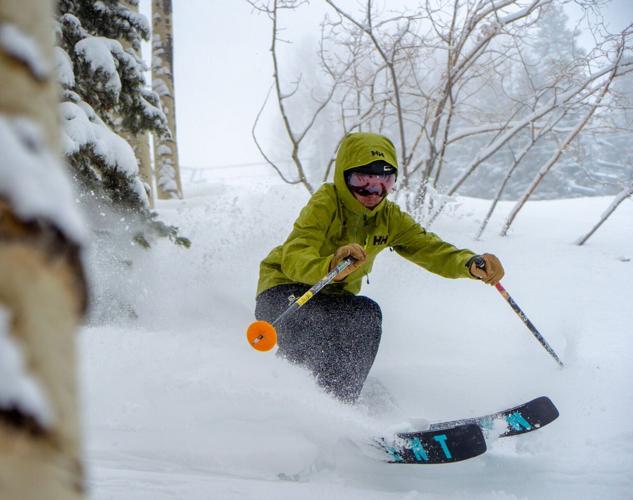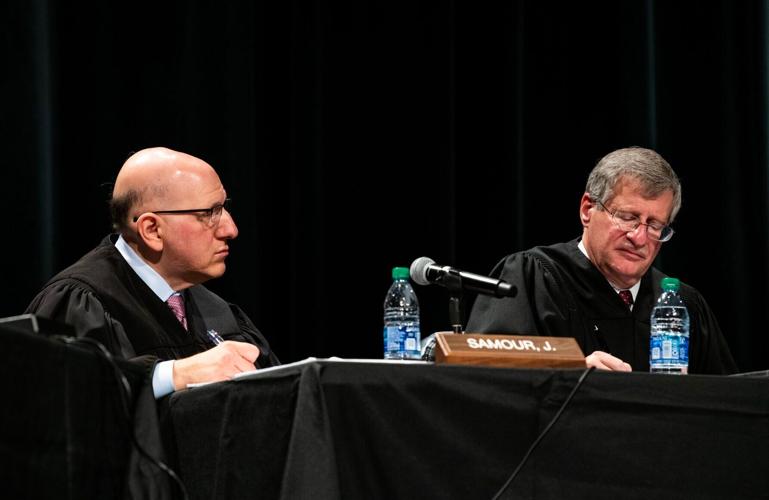‘Something about that is wrong’: Colorado justices weigh ski resort immunity for child’s debilitating fall
In a case that attracted the interest of Colorado’s outdoor recreation industry, the state Supreme Court considered on Tuesday whether parents may waive their children’s right to sue for debilitating injuries that are allegedly the fault of a negligent ski resort operator.
Annalea “Annie” Miller was 16 years old when she fell 30 feet from a chair lift at Crested Butte Mountain Resort. Her father, Michael D. Miller, filed suit alleging Annie’s injuries — which resulted in her paralysis — were the product of the operator, Vail Resorts, failing to exercise the appropriate level of care in running the lift.
After a trial judge dismissed Miller’s negligence claim, Miller appealed directly to the Supreme Court, arguing Vail Resorts’ legal duty to its customers was not something he could sign away on Annie’s behalf when he acknowledged in a waiver they would “assume all risks and dangers of the activity.”
“Crested Butte and the ski industry as a whole is attempting to get complete contractual immunity,” claimed attorney Bruce L. Braley during oral arguments. “That’s why this case is so important as a matter of public policy.”
Multiple members of the Supreme Court appeared uneasy with the scope of the Millers’ liability waiver, particularly for an injury that did not occur specifically while skiing.
“It’s one thing to say you take a risk of falling and tearing your ACL on a ski slope,” said Justice Richard L. Gabriel. “It’s another thing to say you’re taking a risk when you get in a chair that you can’t control.”
“If you want to ride the lift, you have to sign a waiver. And yet, we have a situation where the legislature is saying, ‘Hey, ski industry, these are the standards that we expect,'” echoed Justice Carlos A. Samour Jr. “And the ski industry turns around and says, ‘Well, that’s nice of you. Thank you. But we’ll just make people waive and be done with it.’ Something about that is wrong.”
Multiple outside organizations weighed in on the Millers’ lawsuit. The National Ski Areas Association, representing the vast majority of ski operations, wrote that chair lift accidents are rare and are typically the fault of customers, rather than operational failures. A legal brief from Colorado’s ski areas, outfitters and other providers in the $14 billion outdoor recreation industry warned that making it easier to override liability waivers and sue over accidents will cause programs to shut down.
“Without the benefit of enforceable releases, many if not most entities in Colorado that provide youth recreational opportunities will have to charge significantly more for those opportunities,” the groups wrote. “Significantly rising costs for youth activities creates a pernicious effect, where only the children of privileged parents will be able to have their children engage in such recreational activities. All other children will be priced out of recreational activities.”
The Colorado Trial Lawyers Association countered that if ski resorts can immunize themselves against liability by forcing customers to sign waivers, some of the nearly 15 million annual ski visits in Colorado may elect to go elsewhere.
“The effect is to put consumers in an unequal bargaining position — they can either choose to forgo skiing at public ski resorts,” wrote attorney S. Paige Singleton, “or venture into the backcountry where there are no facilities for children or the disabled, and where the terrain is potentially unsafe or even deadly.”
After Annie Miller’s March 2022 fall from the chair lift, her father sued Vail Resorts, alleging he screamed for an operator to stop the lift as his daughter struggled to hold onto the vehicle. Broomfield District Court Judge Sean Finn refused to throw out Michael Miller’s claim of gross negligence, but he agreed to dismiss the other negligence claims, reasoning the waiver signed on Annie’s behalf immunized Vail Resorts from liability.
On appeal, two areas of the law appeared at odds with each other. On the one hand, ski lift operators owe the “highest degree of care” to customers. On the other hand, parents may waive any potential claim of negligence on behalf of their children.
“We might reach a point as a society,” said Vail Resorts’ lawyer, Michael J. Hofmann, “where we think the most important thing about childhood is avoiding risk. That we think there always must be a negligence lawsuit if the risk materializes. And that the views of parents on these matters are not relevant.”
But, he continued, “I don’t think we’re there.”
“Why does it have to be a binary?” interjected Justice William W. Hood III. “It seems like there’s room for an interpretation that says, ‘As to this risk, you can’t waive,’ when you’re talking about lift operation.”
Justice Monica M. Márquez suggested that even if the Millers’ claims of negligence could not proceed, they still had one viable option.
“It seems to me that the allegations of the complaint actually set out a pretty solid claim for gross negligence,” she said. “If no one was there, if no one was paying attention and the lift kept operating, that seems like gross negligence to me.”
Perhaps, responded Braley, the Millers’ lawyer. But such a claim “requires a much higher burden of proof for a plaintiff than a case involving the highest standard of care for a ski operator.”
The case is Miller v. Crested Butte, LLC.






